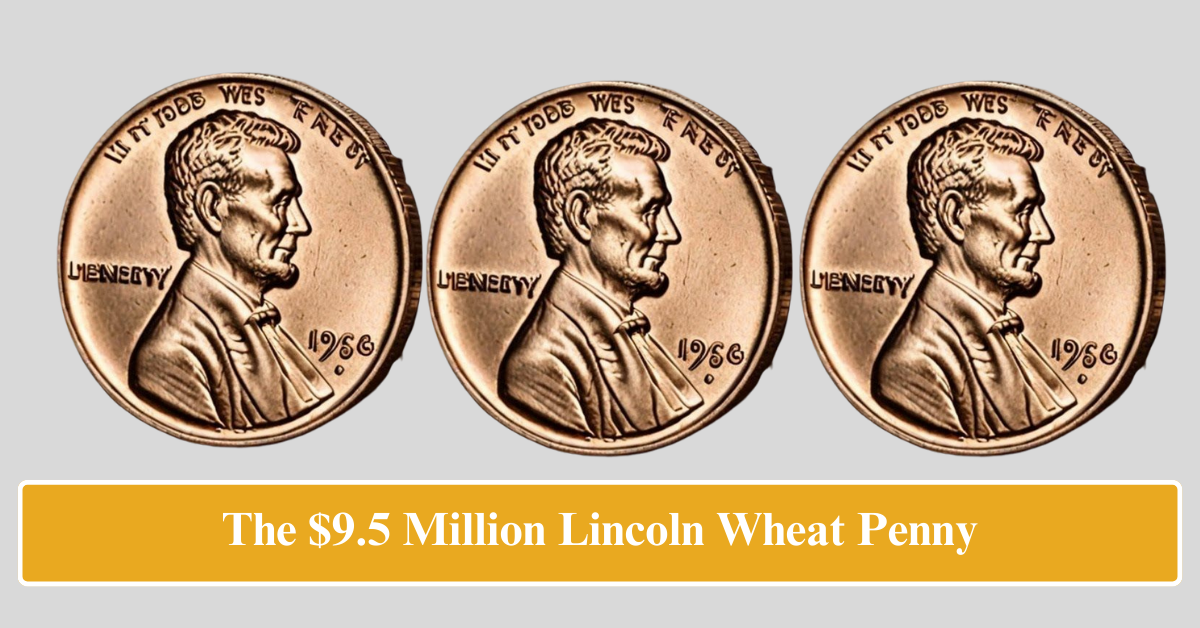The Lincoln Wheat Penny, minted between 1909 and 1958, is an enduring favorite among collectors, blending historical significance with design artistry. While many of these pennies are common, a few rare specimens, such as the 1943-S bronze Lincoln cent, have reached astounding values, including auction prices of over $500,000.
The Legacy of the Lincoln Wheat Penny
Introduced in 1909 to commemorate Abraham Lincoln’s centennial birth anniversary, the Lincoln Wheat Penny marked the first time a U.S. coin featured a president’s likeness. Designed by Victor David Brenner, the coin’s obverse displays Lincoln’s profile, while the reverse features two wheat stalks symbolizing prosperity.
Key Features of the Lincoln Wheat Penny
| Feature | Description |
|---|---|
| Obverse Design | Profile of Abraham Lincoln |
| Reverse Design | Two wheat stalks flanking the denomination |
| Composition | 95% copper, 5% tin and zinc (1909–1942, 1944–1958); zinc-coated steel (1943) |
| Mint Marks | None (Philadelphia), ‘D’ (Denver), ‘S’ (San Francisco) |
| Years Minted | 1909–1958 |
The 1943 Bronze Lincoln Penny: A Numismatic Rarity
During World War II, copper became essential for military equipment, leading the U.S. Mint to produce pennies from zinc-coated steel in 1943. However, a small number of leftover bronze planchets from 1942 were mistakenly used, resulting in the rare 1943 bronze Lincoln cents. These coins were minted in Philadelphia, Denver, and San Francisco, with the 1943-S being particularly scarce—only six verified examples exist.
Why Is the 1943-S Bronze Penny So Valuable?
- Rarity: The accidental use of bronze planchets makes this coin one of the rarest U.S. minting errors.
- Historical Significance: As a wartime error, it represents a unique period in U.S. history.
- Condition: Well-preserved coins, especially those graded MS63 Brown or higher, fetch premium prices.
- Collector Demand: The combination of rarity and historical intrigue makes it highly sought after.
Notable Auction Sales
The 1943-S bronze Lincoln penny has made headlines with extraordinary auction results:
| Year | Auction House | Grade | Sale Price |
|---|---|---|---|
| 2012 | Private Transaction | MS63 Brown | $1,000,000 |
| 2024 | Heritage Auctions | MS63 Brown | $504,000 |
How to Identify a 1943 Bronze Lincoln Penny
To determine if you possess this rare coin, follow these steps:
- Magnetic Test
Steel pennies are magnetic, while bronze pennies are not. - Weight Check
Bronze pennies weigh approximately 3.11 grams, compared to the 2.7 grams of steel pennies. - Visual Inspection
Bronze pennies have a distinct coppery hue, unlike the grayish tone of steel cents.
Other Valuable Lincoln Wheat Pennies
While the 1943 bronze penny is exceptionally rare, several other Lincoln Wheat Pennies are also highly valuable:
| Year | Mint Mark | Notable Feature | Approximate Value |
|---|---|---|---|
| 1909 | S VDB | Low mintage, designer’s initials | Up to $10,000 |
| 1914 | D | Low mintage | Up to $5,000 |
| 1922 | No D | Missing mint mark error | Up to $2,500 |
Tips for Preserving and Valuing Your Coins
- Avoid Cleaning
Cleaning a coin can diminish its value significantly. - Professional Grading
Consult a reputable grading service, such as PCGS or NGC, to authenticate and evaluate the coin’s condition. - Seek Expert Advice
Reach out to numismatists or coin dealers for insights into your coin’s worth.
The Lincoln Wheat Penny, particularly rare examples like the 1943-S bronze cent, highlights the potential treasures hidden in coin collecting. With values reaching into the hundreds of thousands, these coins serve as a reminder of the fascinating stories coins can tell. Whether you’re a seasoned collector or just getting started, regular inspection of your change might uncover a historical gem.
FAQs
Its rarity, historical significance as a wartime minting error, and high collector demand drive its extraordinary value.
Perform a magnetic test—steel pennies are magnetic, while bronze ones are not. Additionally, bronze pennies weigh more and have a copper-like appearance.
No, 1943 bronze pennies were minted in Philadelphia, Denver, and San Francisco.
Avoid cleaning it, have it professionally graded, and consult with a numismatic expert to verify its authenticity and value.
You can sell through reputable coin dealers, auction houses, or online numismatic marketplaces.

